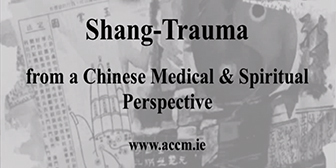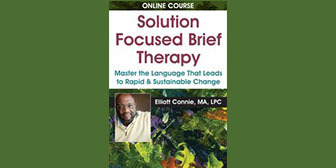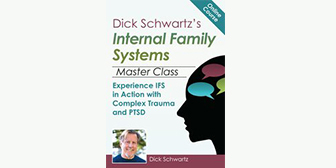MEADOWS: Immobility, Helplessness and Loss of Self-regulation in the time of COVID-19 By Peter Levine & Bessel van der Kolk - PESI
MEADOWS: Immobility, Helplessness and Loss of Self-regulation in the time of COVID-19 By Peter Levine & Bessel van der Kolk - PESI For Immediate Digital Download!

MEADOWS: Immobility, Helplessness and Loss of Self-regulation in the time of COVID-19
Speakers: Bessel A. van der Kolk, MD | Peter Levine, PhD
Duration: 1 Hour 27 Minutes
Format: Audio and Video
Description
Watch renowned trauma experts and Meadows Behavioral Healthcare Senior Fellows Peter Levine, PhD and Bessel van der Kolk, MD as they explore our present “normal” in this time of Covid-19. A discussion on immobility, helplessness and the loss of self-regulation, and how connection to body/self, family, friends, community, nature, and spirit is a fundamental resource in the process of healing. Movement, breathing, singing, interaction with each other—can help us to discover natural resources of self-regulation especially when life is challenging.
Speakers
Bessel A. van der Kolk, MD
Trauma Research Foundation
Bessel A. van der Kolk, MD, is a clinician, researcher and teacher in the area of post-traumatic stress. His work integrates developmental, neurobiological, psychodynamic and interpersonal aspects of the impact of trauma and its treatment.
Dr. van der Kolk and his various collaborators have published extensively on the impact of trauma on development, such as dissociative problems, borderline personality and self-mutilation, cognitive development, memory, and the psychobiology of trauma. He has published over 150 peer-reviewed scientific articles on such diverse topics as neuroimaging, self-injury, memory, neurofeedback, Developmental Trauma, yoga, theater, and EMDR.
He is founder of the Trauma Center in Brookline, Massachusetts and President of the Trauma Research Foundation, which promotes clinical, scientific, and educational projects.
His 2014 #1 New York Times best seller, The Body Keeps the Score: Brain, Mind, and Body in the Treatment of Trauma, transforms our understanding of traumatic stress, revealing how it literally rearranges the brain’s wiring – specifically areas dedicated to pleasure, engagement, control, and trust. He shows how these areas can be reactivated through innovative treatments including neurofeedback, somatically based therapies, EMDR, psychodrama, play, yoga, and other therapies.
Dr. van der Kolk is the past president of the International Society for Traumatic Stress Studies, and professor of psychiatry at Boston University Medical School. He regularly teaches at conferences, universities, and hospitals around the world.
Speaker Disclosures:
Financial: Dr. Bessel van der Kolk is a professor at Boston University School of Medicine, the Director of the Trauma Center, and the National Complex Trauma Network. He receives royalties as a published author. Dr. van der Kolk receives a speaking honorarium, recording royalties, and book royalties from PESI, Inc. He has no relevant financial relationships with ineligible organizations.
Non-financial: Dr. Bessel van der Kolk has no relevant non-financial relationships with ineligible organizations.
Peter Levine, PhD
Dr. Peter Levine holds doctorates in both medical biophysics and psychology. He is the developer of Somatic Experiencing® (SE), a naturalistic body-awareness approach to healing trauma, which he teaches all over the globe. Dr. Levine is also the founder of the Foundation for Human Enrichment and was a stress consultant for NASA during the development of the space shuttle.
An accomplished author, Dr. Levine penned Healing Trauma, Sexual Healing and the bestselling book, Waking the Tiger. He also co-authored with Maggie Kline Trauma Through a Child’s Eyes and Trauma-Proofing Your Kids. His latest book, In an Unspoken Voice: How the Body Releases Trauma and Restores Goodness, is a testament to his lifelong investigation into the connection between evolutionary biology, neuroscience, animal behavior, and more than 40 years of clinical experience in the healing of trauma.
Dr. Levine was honored in 2010 with a Lifetime Achievement Award from the United States Association for Body Psychotherapy (USABP) and is a Senior Fellow at Meadows Behavioral Healthcare.
Speaker Disclosures:
Financial: Dr. Peter Levine is the founder and president of the Ergos Institute of Somatic Education, the president and editorial director of Ergos Institute Press, and receives a consulting fee from the Meadows Addiction Center. He receives royalties as a published author. Dr. Levine receives a speaking honorarium, recording, and book royalties from Psychotherapy Networker and PESI, Inc. He has no relevant financial relationships with ineligible organizations.
Non-financial: Dr. Peter Levine is a senior clinical fellow and advisor to the Meadows Addiction Treatment Center. He is a member of the American Psychological Association, the Humanistic Psychological Association, and the International Society for Traumatic Stress Studies.
Outline
- Attachment and Trauma
- Connection /Disconnection
- Self-regulation
- Movement / immobility
Objectives
- Analyze the differences between disrupted attachment and traumatic stress
- Apply somatic techniques to calm the body to promote self-regulation, integration and empowerment.
- Examine the role of interpersonal rhythms and attunement in establishing a sense of self and community
- Identify ways to gain access to innate self-regulatory systems—including movement, breathing, singing, interaction with others
Reviews
Nadine M
"Would have like a handout with pertinent info and references, etc. Otherwise great!"
Amanda H
"Very helpful"
Antonia F
"I thought it was very helpful. I just have one suggestion. I noticed both Bessel and Peter used the term "seduce" in reference to helping people feel safe in their bodies. To me, seduce, or seduction is a potentially triggering word because it is most often used as a wrd that has to do with sex and convincing someone that they want to have sex. It seems as if there are so many other words to use instead of "seduce". Perhaps "welcome", "safely encourage", "titrate", "nudge"..."
MEADOWS: Immobility, Helplessness and Loss of Self-regulation in the time of COVID-19 By Peter Levine & Bessel van der Kolk - PESI, What Is It Included (Content Proof: Watch Here!)
Reviews: What our clients say about RichMission.com
 Base on 0+ reviews
Base on 0+ reviews








Customer Reviews
252 Reviews | ExcellentBase on 252+ reviews